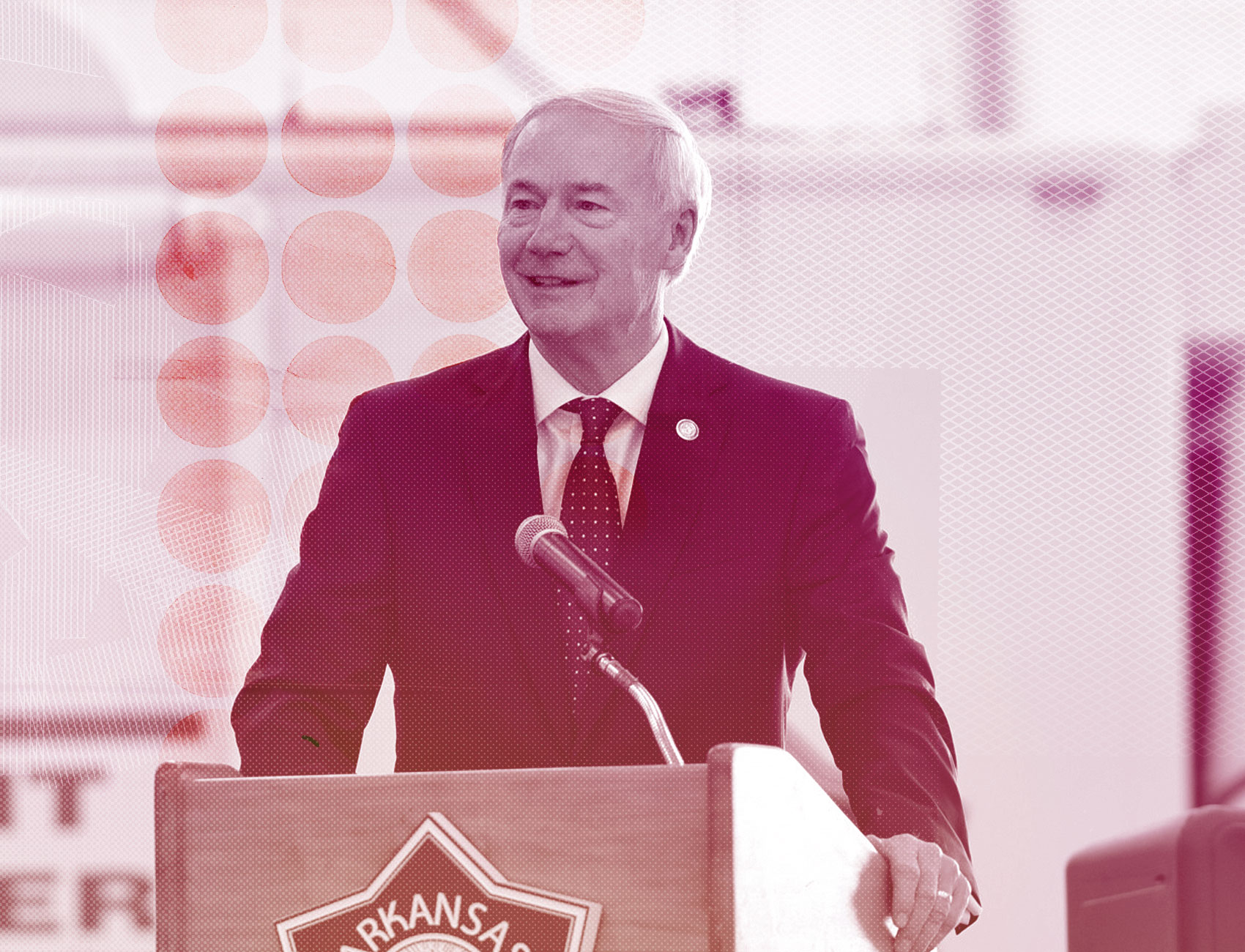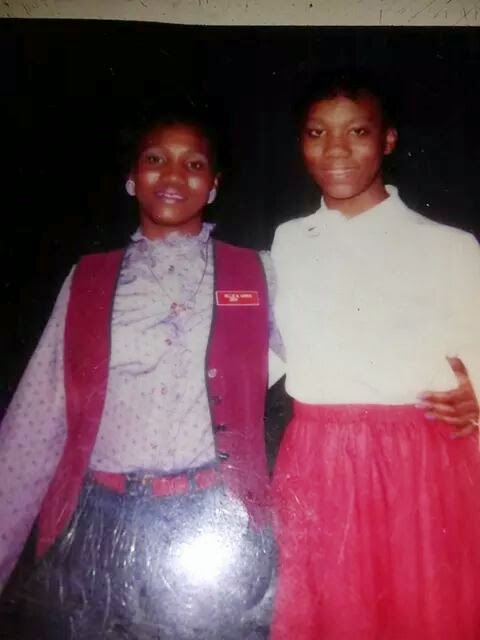A Life Sentence in Arkansas. And a Lifetime of Pain.
The state’s parole board has recommended that Willie Mae Harris, convicted of killing her husband in 1985, be freed five times. Now 72 and completely blind, her fate lies with Gov. Asa Hutchinson.

At around 2 on a January morning in 1985, Silvia Harris Wilkins heard a gunshot in her Bradley, Arkansas, home followed by her mother, Willie Mae Harris, calling her name. Willie told Silvia that she had shot her husband, Clyde Harris, by mistake. Silvia raced into her parents’ room, where she found her father lying on the bed.
Before the ambulance arrived, Clyde died from a single gunshot. The Lafayette County district attorney’s office charged Willie with first-degree murder and offered her a plea deal: She could serve 20 years in prison and be out in 13 with good behavior. Willie refused. At trial in November that year, Willie’s defense attorney told the jury that Clyde’s death was a tragic accident. “When I lie my head down, my husband was threatening to kill me,” she testified. “And I don’t really know what happened. You all believe me, I did not shoot my husband.”
Prosecutors countered that Willie intentionally pulled the trigger at point-blank range. In his closing argument, the prosecutor called Clyde’s death “nothing but cold-blooded murder.” The one-day trial concluded with Willie being convicted of first-degree murder and receiving a life prison sentence. At the time, Silvia was just 14. “I didn’t just lose my daddy. In one instance, I lost both my parents,” she told The Appeal.
Now 72 and blind, Willie has been incarcerated at the Wrightsville Women’s Facility, southeast of Little Rock, for 34 years.
Since 1998, Willie has petitioned the state to free her through executive clemency. The parole board recommended her for release five times, yet no governor, who has the final decision, has agreed.
Willie filed her latest application for clemency in September 2018, but the parole board, dominated by Republican Governor Asa Hutchinson’s appointees, decided that it had no merit. In 2015, the year he took office, Hutchinson denied a clemency request from Willie. He has largely granted clemency to people convicted of nonviolent offenses.
“She has seriously paid, I think, for her crime, whatever it was,” Willie’s clemency attorney, Lee Eaton, told The Appeal. “She has tremendous remorse for what she did, for what she caused to happen. Every time Clyde comes up, she tears up. She would tell you today that she loves him and she never stopped loving him.”

The Harrises had been married for two years when Clyde began to verbally and physically abuse Willie, according to pre-trial evaluation by a forensic psychologist. Willie said Clyde once hit her hard enough to rupture her eardrum. Another time, Silvia witnessed Clyde break Willie’s hand with a steel pipe.
In their Arkansas home, Clyde’s guns were always on display. He kept two guns by his bed and tucked a .22 caliber pistol underneath his mattress.
In July 1984, Willie and her daughters moved to Shreveport, Louisiana, to live with her mother. Clyde pleaded for Willie to return, sometimes threatening suicide. In January 1985, Willie moved back to Bradley. Over 18 days that month, Willie testified that Clyde acted “like an insane person” and hurled threats at her. Fearing for her life, Willie kept a .25 pistol in her purse. “Every night he would tell me that I’m going to kill you, get rid of you, you ain’t doing me no good, things of that sort,” she told the jury. “I didn’t put the gun there to kill. I put it there because Clyde had just frightened me.”
On the evening of Jan. 29, Willie, Clyde, and their two daughters, Silvia and Mellowne, watched television together. After the girls went to bed, Clyde accused Willie of giving him gonorrhea and then attempted to have anal sex with her. Willie later testified that she refused and Clyde pushed her. She took her pistol out of her purse, flung her knee over him, and hit him repeatedly with the gun. Willie said she didn’t remember how many times she hit him before the gun went off through the bed covers. “Willie Mae, you shot me,” he told her.
Clemency is one of several mechanisms to relieve overcrowded prisons and reward prisoners for their behavior while incarcerated. Its use has been mixed. This month, Oklahoma Governor Kevin Stitt commuted the sentences of 527 people convicted of possession and property crimes. In New York, however, Governor Andrew Cuomo has yet to decide on more than 100 clemency applications submitted through a program he sponsored. In his nine years as governor, he has commuted just 18 sentences, though he has issued 200 full pardons and 44,000 conditional pardons to restore voting rights.
Since taking office four years ago, Hutchinson has granted clemency to roughly 500 people. Just one person who received clemency, Shirley Danner, was convicted of first-degree murder. In the early 1970s, Danner was working as a sex worker when she shot a man who attemped to date underage girls. In 1975, Danner was sentenced to life in prison. The parole board recommended her for release at least 17 times before Hutchinson approved her clemency petition in April 2019.
Governors were not always so hesitant to free people convicted of violent offenses. During his tenure, from 1997 to 2006, former Arkansas Governor Mike Huckabee granted clemency to 1,058 people, many of whom committed violent crimes. In Pennsylvania during the 1970s, Governor Milton Shapp granted clemency to approximately 30 people serving life sentences for murder each year he was in office. And in Oregon, Governor Sylvester Pennoyer pardoned eight people for murder over the course of two years in the 1890s.
But people convicted of violent crimes aren’t alone in facing challenges to winning their freedom. “The sort of overarching general trend is it’s so much harder to get clemency from governors,” Rachel Barkow, a vice dean and professor at New York University School of Law who studies clemency, told The Appeal. “It’s the Willie Horton Effect.”
Historically, Barkow said, governors have been more sympathetic to people who have experienced domestic abuse.
Though Willie has noted Clyde’s abuse in her clemency applications, almost none of that evidence was presented during her trial. Willie’s defense attorneys did not obtain medical records documenting her injuries and she was the only person to testify in her defense, even though several witnesses to the abuse she endured said they were willing to take the stand. Silvia told The Appeal that her mother’s attorney told her that she was too young to testify in court. “I was like, ‘It’s not right, y’all don’t know what she went through,’” she said. “I should’ve had a chance to defend her.”
Two of the five parole board recommendations for Willie’s release reviewed by The Appeal noted that she was a victim of domestic violence. Others acknowledged her strong family ties and work as a tutor teaching hundreds of incarcerated people how to read. But in April, when they were considering Willie’s most recent petition, just two of the seven parole board members recommended a hearing, and her application was deemed “without merit.” “Weapon used/death of victim,” was noted as one reason for the board’s decision, along with a checkmark beside “sentence is not excessive.”
The parole board’s decision left Eaton, Willie’s attorney, aghast. “For me to talk about Willie case to anyone, they get all these different pieces and are like, ‘Oh my God, why is she still there?” she said.
“It was shocking that anyone would even consider that I would premeditate the killing of my husband when, in fact, I was the one always trying to hold my family together,” Willie told The Appeal in a statement through Eaton.”I deeply regret what happened; especially depriving my children of both parents.”
Hutchinson has until April 2020 to decide on Willie’s application. He can determine that she should be released, remain incarcerated, or make no decision. If he makes no decision, Willie will be able to file an application again in one year. If he declines to grant her freedom, Willie will have to wait four years to file another application.
The governor’s office did not respond to requests for comment from The Appeal.
If Willie is freed, Silvia has a long list of plans for her, including Sunday service at a Dallas megachurch she has always wanted to attend, time with family members she hasn’t seen for decades, and a first-time trip to the nail salon. Silvia visits her mother in prison twice a year and video chats with her often, but such contacts can’t compare to time together in the free world.
“My grandmother went to her grave praying and hoping she would live to see her daughter come home,” said Silvia. “If I tell anybody my biggest fear, it’s burying my mother in prison.”
